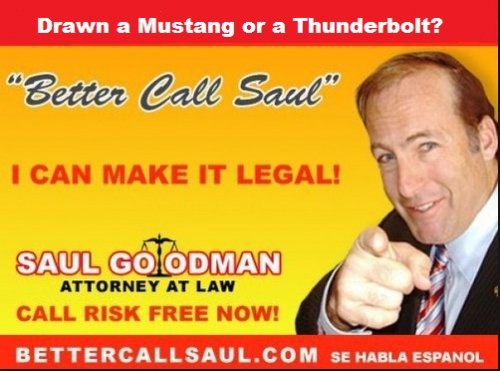Kryptid
ACCESS: Secret
- Joined
- 12 March 2009
- Messages
- 281
- Reaction score
- 41
I'm pretty sure we have one or more authors here, so I was hoping that I may be able to get this question answered.
If I intended on writing a book about unbuilt aircraft, and drew all of the artwork myself (no photographs), would I still need permission from Boeing, Sukhoi, Dassault, etc. in order to publish the book?
If I intended on writing a book about unbuilt aircraft, and drew all of the artwork myself (no photographs), would I still need permission from Boeing, Sukhoi, Dassault, etc. in order to publish the book?



